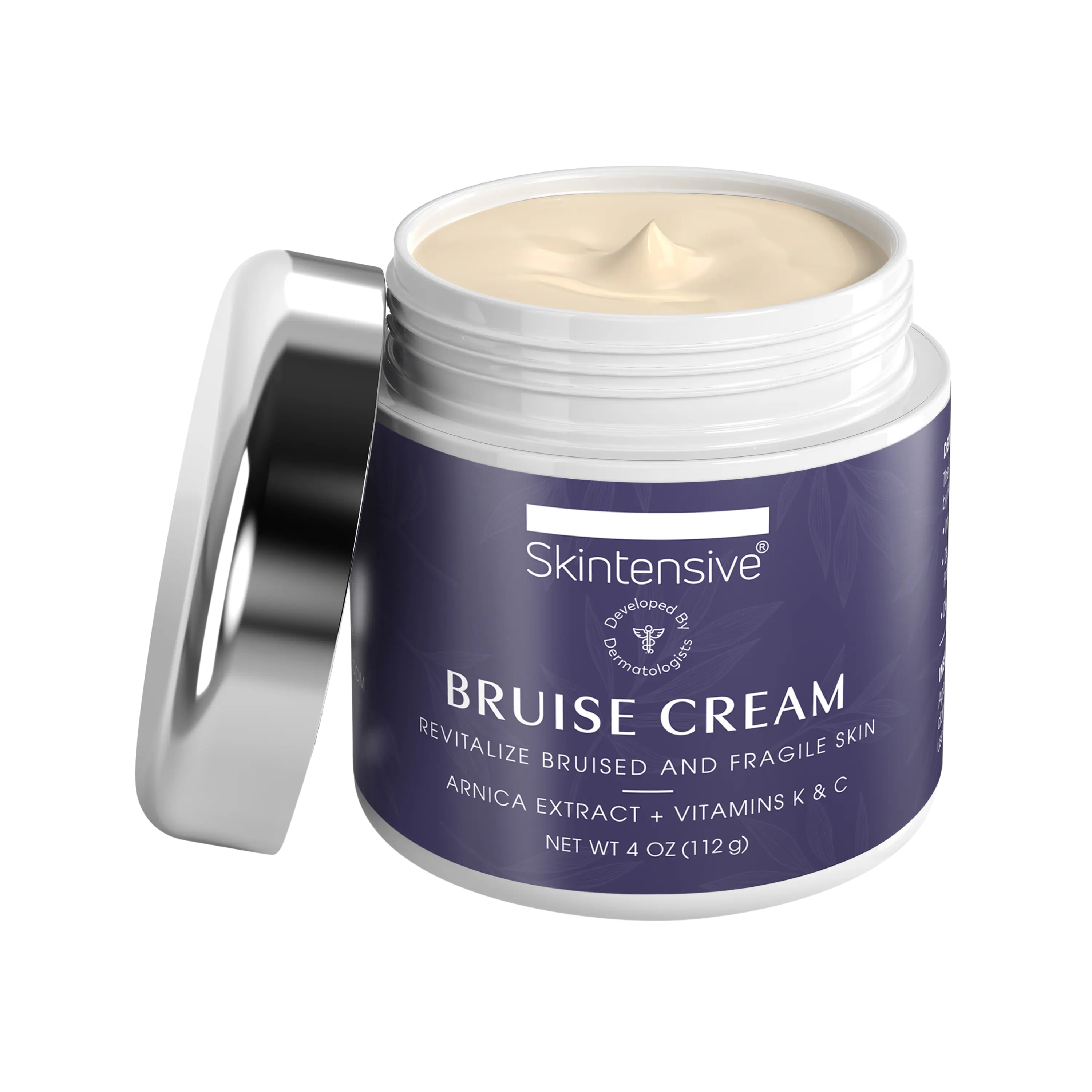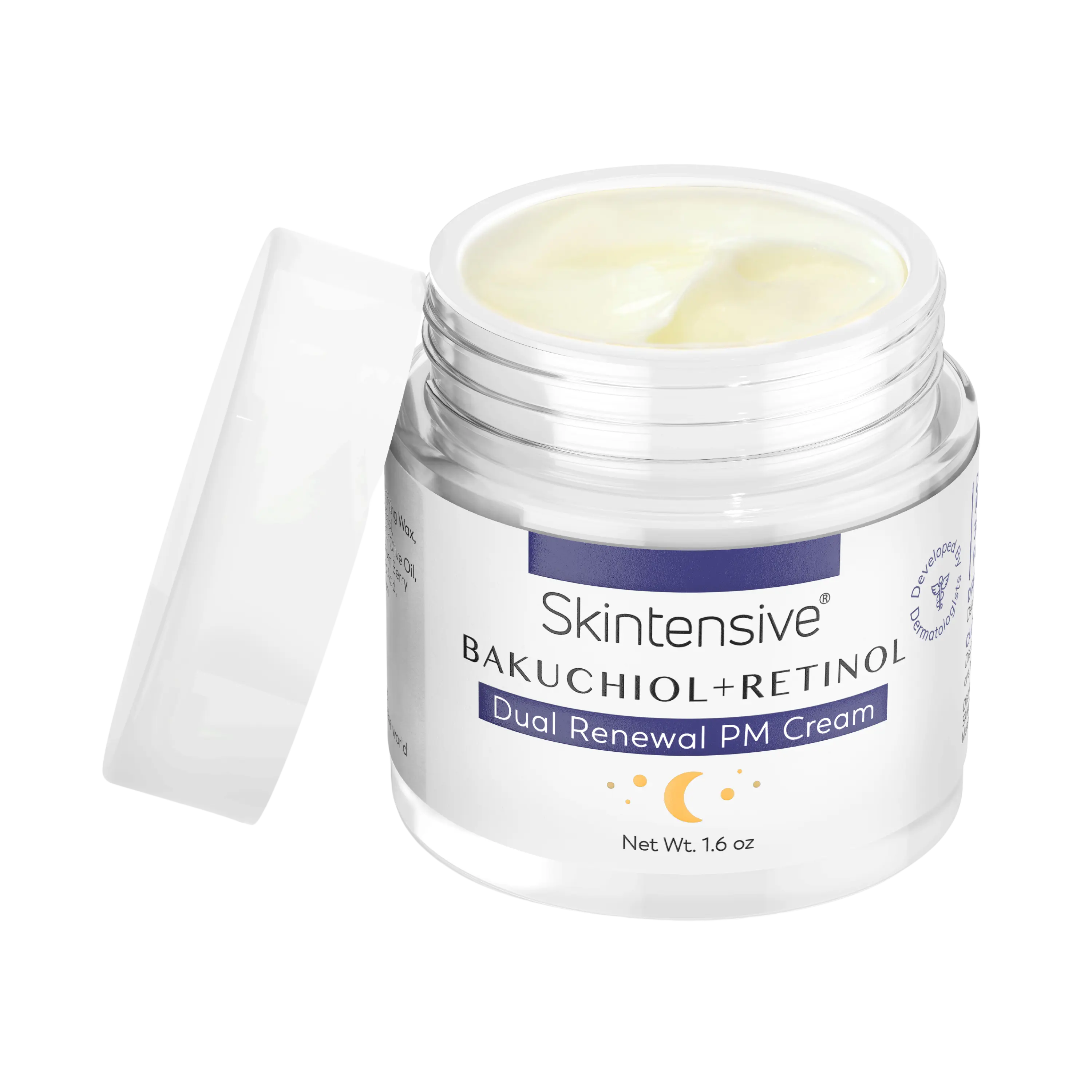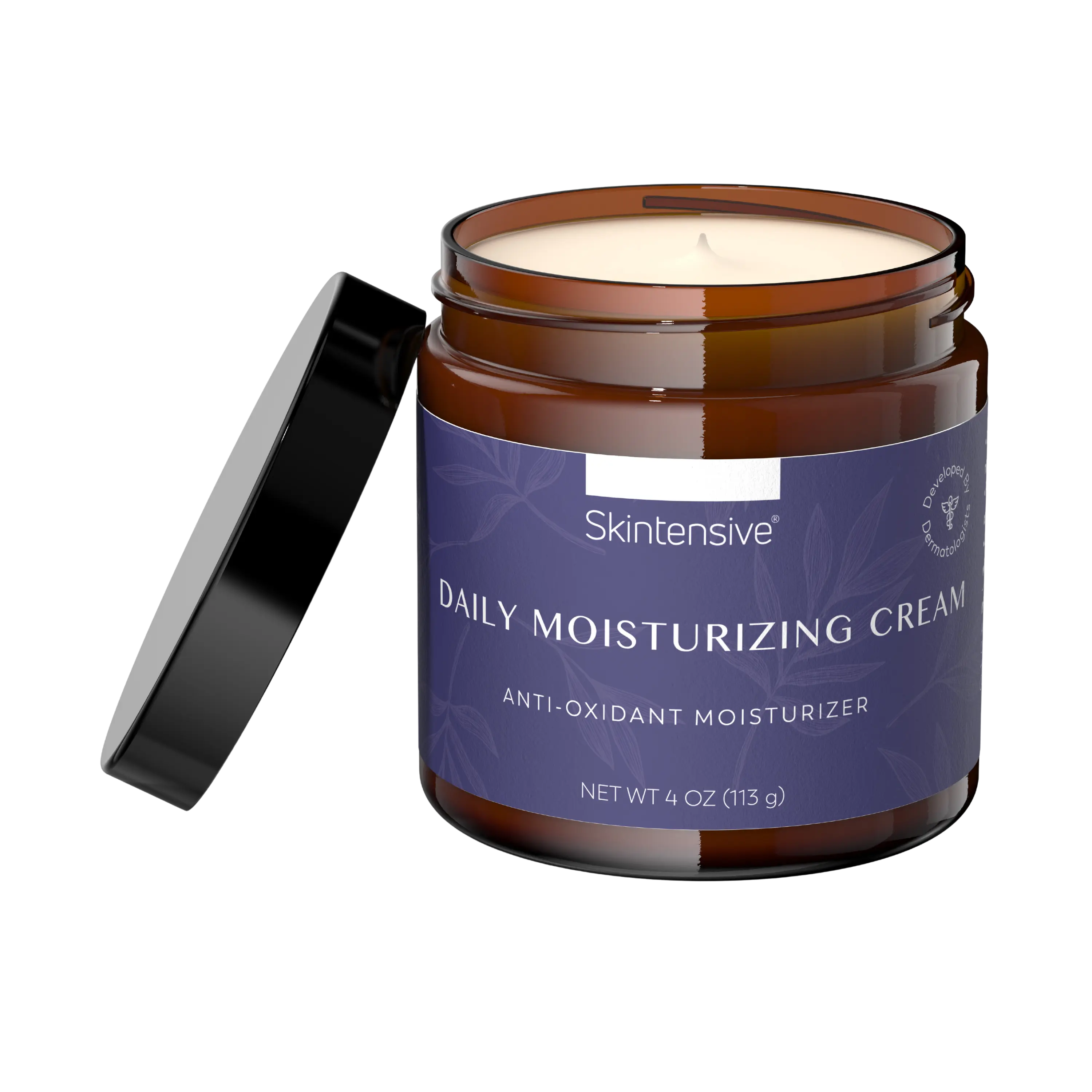Are you tired of relying on synthetic products for pain relief? Looking for a natural solution that can alleviate discomfort and promote healing? Look no further than arnica cream. This versatile cream is derived from the arnica flower and has been used for centuries for its therapeutic properties. In this blog, we will delve into the top 5 uses of arnica cream and discover how it can benefit you.
From easing muscle pain and reducing inflammation to speeding up the healing process and alleviating bruising, arnica cream offers a multitude of benefits. We will explore its effectiveness in relieving joint pain, soothing bruises, reducing swelling. You'll learn how to incorporate arnica cream into your daily routine and reap its incredible advantages.
With its natural ingredients and proven efficacy, arnica cream may provide a safe and effective alternative to traditional pain relief methods. So, whether you're an athlete looking to recover from a workout or someone struggling with chronic pain, arnica cream may be the solution you've been searching for.
LEARN MORE ABOUT SKINTENSIVE BRUISE CREAM, THE LEADING ARNICA CREAM HERE
Introduction to Arnica Cream
Arnica cream has gained widespread popularity as a natural remedy for a variety of concerns. Derived from the arnica plant, this topical preparation has been used for centuries due to its potential healing properties. As people's interest in natural alternatives continues to grow, arnica cream has become a go-to solution for those seeking a holistic approach to their well-being.
What sets arnica cream apart is its potential to provide relief from pain, reduce inflammation, and speed up the healing process. This natural remedy can be combined with physician prescribed treatments. Obtain guidance from a physician for any clinical condition before undertaking any self diagnosis or treatment options.
The Popularity of Arnica Cream
The increased demand for alternative remedies has contributed to the growing popularity of arnica cream. People are increasingly drawn to this natural solution as it offers a range of potential benefits, including pain relief, bruise management, muscle soreness alleviation, arthritis support, and skin enhancement.
Arnica cream's popularity can be attributed to its versatility. This multipurpose cream can be safely incorporated into various aspects of everyday life, from providing comfort after a rigorous workout to aiding the healing process of bruises and helping with arthritis-related symptoms.
With its long-standing history as a trusted natural remedy, arnica cream continues to gain recognition and is widely available as a commercial product. When used as directed, it has the potential to offer support for a variety of common concerns, making it an excellent addition to your wellness regimen.
Remember, before incorporating any new product into your routine, it's essential to consult with a healthcare professional to ensure it's appropriate for your specific needs and circumstances.
Top Use 1: Pain Relief
Arnica cream is widely recognized for its ability to alleviate pain and reduce inflammation. This natural remedy has been used for centuries to relieve discomfort associated with various conditions. Whether you're dealing with muscle soreness, joint pain, or even post-operative discomfort, arnica cream may provide much-needed relief.
Mechanisms of Action
Arnica cream works by stimulating circulation and reducing inflammation in the affected area. This is due to the presence of bioactive compounds, such as helenalin, which possess analgesic and anti-inflammatory properties. When applied topically, these compounds interact with the body's receptors, helping to alleviate pain and promote healing.
Examples of Pain Relief
- Sports Injuries: Arnica cream can be particularly beneficial for athletes or individuals who engage in physical activities. It helps to reduce pain and inflammation associated with sprains, strains, and bruises, allowing for faster recovery and return to training.
- Arthritis: People suffering from arthritis often experience joint pain and stiffness. Applying arnica cream to affected areas can offer temporary relief and improve mobility. However, it is important to consult with a healthcare professional for long-term management of arthritis.
- Post-operative Pain: After surgical procedures, arnica cream can aid in reducing pain and swelling around the incision site. It is important to follow the surgeon's instructions regarding post-operative care and use of arnica cream.
How to Use Arnica Cream for Pain Relief
To use arnica cream effectively, follow these guidelines:
- Cleanse the Area: Before applying arnica cream, ensure that the area is clean and dry. This helps prevent any infection and ensure proper absorption of the cream.
- Apply a Thin Layer: Gently apply a thin layer of arnica cream to the affected area. Massage the cream into the skin using circular motions until fully absorbed.
- Frequency of Application: Follow the instructions provided by the manufacturer or consult with a healthcare professional for recommended frequency of use. Typically, arnica cream can be applied 2-3 times a day or as needed for pain relief.
- Avoid Open Wounds: Do not apply arnica cream to open wounds or broken skin, as it may cause irritation. It is best to wait until the skin has fully healed before using arnica cream.
- Discontinue Use if Allergic Reaction Occurs: If you experience any allergic reaction, such as rash, itching, or swelling, discontinue use immediately and seek medical attention.
Remember, while arnica cream can provide temporary pain relief, it is important to consult with a healthcare professional for proper diagnosis and management of underlying conditions. Additionally, arnica cream should not be used as a substitute for medical treatment or prescription medication.
In the next section, we will explore another top use of arnica cream: managing bruises.
Top Use 2: Managing Bruises
Bruises can be quite bothersome, causing discoloration, tenderness, and swelling. Arnica cream is a popular natural remedy known for its ability to speed up the healing process of bruises and provide relief from these discomforts.
LEARN MORE ABOUT SKINTENSIVE BRUISE CREAM, THE LEADING ARNICA CREAM HERE
Here's how arnica cream can benefit you in managing bruises:
Accelerates Healing Process
Arnica cream contains active compounds, such as sesquiterpene lactones and flavonoids, which possess anti-inflammatory and analgesic properties. When applied to a bruise, arnica cream works by increasing blood circulation to the affected area, helping with bruise resolution and reduce inflammation. This accelerated healing process can aid in minimizing the appearance of bruises and promoting faster recovery.
Provides Relief from Discoloration and Swelling
The anti-inflammatory properties of arnica cream are particularly beneficial in reducing discoloration and swelling associated with bruises. The cream may help the body’s natural bruise resolution molecular mechanisms, and thus help speed up the process of lightening the characteristic blue or purple discoloration. By reducing inflammation, arnica cream can also help in relieving pain and tenderness commonly experienced with bruises.
How to Use Arnica Cream for Bruises
To effectively manage bruises with arnica cream, follow these simple steps:
- Cleanse the affected area: Before applying arnica cream, gently clean the bruised area with mild soap and water. Pat the area dry.
- Apply a thin layer of arnica cream: Take a small amount of arnica cream and gently massage it into the bruised area using circular motions. Ensure that you cover the entire bruised area with a thin layer of the cream.
- Repeat application: Apply arnica cream 2 to 3 times a day, or as directed by the product packaging or your healthcare professional. Be consistent with the application to maximize the benefits.
Precautions and Considerations
While arnica cream is generally safe for external use, it is important to take certain precautions:
- Avoid applying arnica cream on open wounds or broken skin.
- Do not ingest arnica cream, as it is meant for topical use only.
- Discontinue use if any skin irritation or allergic reaction occurs.
- Consult with a healthcare professional before using arnica cream on children or if you have any underlying health conditions.
Please note that arnica cream is not meant to replace proper medical care. If you have severe bruising, unexplained bruising, or bruising accompanied by other concerning symptoms, it is advised to seek medical attention.
Incorporating arnica cream into your bruise management routine can be a natural and effective way to promote faster healing and alleviate discomfort. Its anti-inflammatory properties and ability to reduce discoloration and swelling make it a valuable addition to your first aid kit. Remember to follow the instructions provided with the arnica cream and consult a healthcare professional if you have any concerns.
Top Use 3: Soothing Muscle Soreness
After a strenuous workout or physical exertion, muscle soreness can hinder your daily activities. Fortunately, arnica cream can be a beneficial aid in soothing muscle soreness and promoting faster recovery.
How Does Arnica Cream Work?
Arnica cream contains compounds known for their anti-inflammatory and analgesic properties. When applied topically, arnica cream can help reduce inflammation, relieve pain, and improve blood flow to the affected area. This increased circulation can facilitate the removal of waste products and promote the delivery of oxygen and nutrients to the muscles, aiding in the healing process.
Benefits of Using Arnica Cream for Muscle Soreness
- Relieves Pain: Arnica cream can provide temporary relief from muscle pain by targeting the source of discomfort. Its analgesic properties help alleviate soreness, allowing you to carry on with your day more comfortably.
- Reduces Inflammation: Inflammation is a common contributor to muscle soreness. The anti-inflammatory properties of arnica cream can help reduce swelling and inflammation in the muscles, easing discomfort and promoting healing.
- Accelerates Recovery: By improving blood circulation to the affected muscles, arnica cream can aid in the removal of metabolic waste products that contribute to post-exercise soreness. This accelerated recovery process can help you bounce back quicker and get back to your regular activities.
How to Use Arnica Cream for Muscle Soreness
- Apply a thin layer of arnica cream onto the affected area.
- Gently massage the cream into the skin until fully absorbed.
- Repeat the application 2-3 times a day or as directed by the product instructions.
Precautions and Tips
- Consult with a healthcare professional before using arnica cream, especially if you have any underlying medical conditions or if you are taking any medications.
- Avoid applying arnica cream on open wounds, broken skin, or mucous membranes.
- Do not use arnica cream in excessive amounts or for prolonged periods without medical guidance.
- If irritation or allergic reactions occur, discontinue use and seek medical advice.
In Conclusion
When it comes to soothing muscle soreness and promoting faster recovery, arnica cream can be a valuable addition to your post-exercise regimen. Its anti-inflammatory and analgesic properties can help alleviate pain, reduce inflammation, and speed up the healing process. Remember to use arnica cream as directed, and consult a healthcare professional if you have any concerns or questions.
Remember to use the keywords and terms provided in the content where relevant. Keep the section within the given word count and maintain a clear and concise writing style.
Top Use 4: Support for Arthritis
Arthritis, characterized by joint pain and stiffness, affects millions of people worldwide. It is important to go to a physician to get a workup and appropriate diagnosis and treatment regimen for any joint pain that is suspicious for arthritis. After an appropriate diagnosis and with approval from your physician, arnica cream may offer temporary relief from its symptoms. With its natural anti-inflammatory properties, arnica cream can help reduce swelling and ease joint discomfort. Here's how arnica cream may be a valuable support for arthritis sufferers:
Reducing Joint Pain
Arnica cream works by stimulating blood circulation and reducing inflammation. This can help temporarily alleviate the pain associated with arthritis. Applying arnica cream to the affected areas can provide targeted relief, giving you an alternative option for pain relief.
Supplementing Medical Treatment
While arnica cream can provide temporary relief, it is important to note that it should not replace prescribed medical treatments for arthritis. However, using arnica cream alongside your doctor-recommended medications or therapies can complement your overall arthritis management plan.
Using Arnica Cream Safely
Before using arnica cream for arthritis, it is crucial to consult with your healthcare provider, especially if you have any pre-existing medical conditions or are taking other medications. Follow the application instructions provided with the cream, and always perform a patch test on a small area of skin to ensure you do not have an allergic reaction.
In Conclusion
For those seeking temporary relief from arthritis symptoms such as joint pain and stiffness, arnica cream can be a valuable natural remedy. By reducing inflammation and easing joint discomfort arnica cream can provide much-needed support and improve your overall well-being. Remember to consult with a healthcare professional to determine the best approach for your individual arthritis management.
Top Use 5: Enhancing Skin Health
Arnica cream not only provides relief from pain and inflammation but also offers remarkable benefits for enhancing skin health. Its natural properties make it an excellent choice for improving the appearance of scars, acne, and various other skin conditions. Here's how arnica cream can nourish your skin and help you achieve a healthier complexion.
Scar Reduction
Arnica cream has been found to have positive effects on scars. Its anti-inflammatory properties help reduce the swelling and redness associated with scars, promoting faster healing. Additionally, arnica stimulates the production of collagen, a protein that plays a crucial role in wound healing and the formation of healthy skin tissue. Regular application of arnica cream can help diminish the appearance of scars and improve skin texture.
Acne Treatment
Arnica cream's anti-inflammatory and antibacterial properties make it an effective natural remedy for acne. When applied topically, it can help reduce the redness, swelling, and discomfort associated with acne breakouts. Arnica cream also helps control sebum production, which is often linked to acne development. Its gentle yet potent action can aid in clearing up existing blemishes while preventing new ones from forming.
Anti-Aging Effects
Arnica cream contains antioxidants that combat free radicals and protect the skin from oxidative stress. This helps slow down the aging process, reducing the appearance of fine lines, wrinkles, and age spots. Regular use of arnica cream can help improve skin elasticity and firmness, resulting in a more youthful and radiant complexion.
Usage Tips
To experience the full benefits of arnica cream for skin health, follow these tips:
- Cleanse your face thoroughly before applying arnica cream to ensure optimal absorption.
- Apply a small amount of arnica cream to the affected areas and massage gently in circular motions until fully absorbed.
- For acne-prone skin, use arnica cream as part of your regular skincare routine, applying it to clean, dry skin twice a day.
- If you have sensitive skin, perform a patch test before using arnica cream to ensure you don't have any adverse reactions.
In conclusion, arnica cream may enhance your skin health in many ways. By reducing the appearance of scars, ameliorating acne, soothing the skin, and providing anti-aging effects, arnica cream can contribute to a healthier and more vibrant complexion. Incorporate arnica cream into your skincare routine and experience the benefits firsthand.
Conclusion
In conclusion, arnica cream is a versatile and natural ingredient that can offer various benefits for your well-being. By incorporating arnica cream into your daily routine, you can experience its therapeutic properties and enhance your overall quality of life.
Here are the top 5 uses of arnica cream:
- Pain Relief: Arnica cream has been proven effective in alleviating pain and reducing inflammation. Its natural compounds can target the source of discomfort and provide much-needed relief. Whether you're dealing with sore muscles, joint pain, or minor injuries, arnica cream can be your go-to solution.
- Managing Bruises: If you're struggling with bruises, arnica cream can accelerate the healing process. Its anti-inflammatory properties can help reduce swelling and discoloration, allowing bruises to fade faster. Simply apply the cream gently to the affected area and let it work its magic.
- Soothing Muscle Soreness: After an intense workout or physical activity, arnica cream can provide soothing relief for muscle soreness. By applying the cream to the affected muscles, it can help reduce inflammation and promote faster recovery, allowing you to get back to your regular routine.
- Support for Arthritis: For those dealing with arthritis symptoms, such as joint pain and stiffness, arnica cream can offer temporary relief. Its analgesic and anti-inflammatory properties can help ease discomfort. Incorporating arnica cream into your arthritis management routine can make a significant difference.
- Enhancing Skin Health: Arnica cream is not only beneficial for pain relief but also for enhancing skin health. Whether you're dealing with scars, acne, or other skin conditions, arnica cream's skin-nourishing properties can improve the overall appearance and promote a healthier complexion.
In summary, arnica cream is a natural and effective ingredient with a wide range of uses. Its versatility makes it a valuable addition to your self-care routine. However, remember that natural ingredients such as arnica are not a substitute for the proper diagnosis and management of skin and muscular/joint conditions. We recommend consulting with a board-certified physician for the initial diagnosis and management of any condition that you may think you have.
FAQs
Q: Is arnica cream safe for everyone?
A: While arnica cream is generally considered safe for topical use, it's important to take certain precautions. Arnica should not be applied to broken or irritated skin, as it may cause skin irritation or allergic reactions. Additionally, pregnant or breastfeeding women should consult with their healthcare provider before using arnica cream to ensure its safety for their specific situation.
Q: How often should arnica cream be applied?
A: The frequency of application depends on the specific instructions provided with the arnica cream you are using. Generally, it is recommended to apply a thin layer of arnica cream to the affected area 2-3 times a day or as directed by a healthcare professional. It's essential to follow the manufacturer's guidelines and not exceed the recommended dosage.
Q: Can arnica cream be used by pregnant or breastfeeding women?
A: Pregnant or breastfeeding women should exercise caution when using arnica cream. While there is limited research on the effects of arnica during pregnancy or breastfeeding, it is advisable to consult with a healthcare provider before use. They can provide guidance based on your individual circumstances.
Q: Are there any possible side effects of arnica cream usage?
A: Although arnica is generally well-tolerated, some people may experience skin irritation, redness, or allergic reactions. If you notice any adverse reactions such as itching, rash, or swelling after using arnica cream, discontinue use and seek medical advice. It's always recommended to consult with a healthcare professional before incorporating any new topical treatments into your routine.
Remember, these FAQs provide general information and should not replace professional medical advice. If you have any specific concerns or medical conditions, consult with a healthcare professional or pharmacist before using arnica cream or any other health-related products.
Disclaimer:
The content in this article is not medical advice, but rather informational content. As a service to our readers, Skintensive provides access to our library of archived blog content. Please note the date of last review or update on all articles. No content on this site, regardless of date, should ever be used as a substitute for direct medical advice from your doctor or other medical professional.







